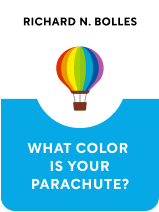

This article is an excerpt from the Shortform book guide to "What Color Is Your Parachute?" by Richard N. Bolles. Shortform has the world's best summaries and analyses of books you should be reading.
Like this article? Sign up for a free trial here .
What are some hiring biases that employers have? How might biases in hiring be preventing you from getting a job?
Hiring biases are to be expected because every human has biases, including employers. While you can’t fix these biases, you can make adjustments to improve your chances of getting the job.
Keep reading for an understanding of hiring biases and how to address them.
Obstacle #1: Hiring Biases
Every single person in the world has something that will hurt their chances of being hired. Whatever your issue is may turn off certain employers, because employers are people and they have hiring biases, but it won’t turn off all employers. While some employers will care more about what you can’t do than what you can, most employers care most about your skills. If your issue doesn’t affect your ability to perform your skills, then it shouldn’t matter to employers.
To remind yourself that there are lots of things you can do, make two lists, one of skills you have and one of skills you don’t (or don’t have yet). Consult your flower or lists of skills such as this one of action verbs. When you’re finished, choose five things from the skills-you-have list that you love to do and then write out experiences that prove how you exercised that skill, ideally recently.
Specific Biases
Employers are forbidden by law from discriminating against certain groups of people, but they may do it anyway, whether consciously or not. The best way to handle biases is to address them and focus on what you’re capable of. Here are some common biases:
- Disability. If you have a disability, the first thing to do is make sure you’re aware of all possible treatments and accommodations—perhaps someone has invented a new strategy or technology that would help you work around your disability. For example, if you have low vision, you might be able to find resources in audio rather than print formats. Or, if there’s a particular job you want to do but can’t, consider similar jobs. For example, if you want to be a pilot but don’t have perfect vision, look at other careers associated with aviation such as building plane parts.
- Long-term unemployment. If you’ve been unemployed for a long time and an employer asks you about this, tell her what you did or learned while you were unemployed. You can find a list of employers who hire people who have been unemployed for a long time from the government.
- Sexual identity, race, and religion. It’s illegal to discriminate based on any of these factors, but some employers are prejudiced and will do it anyway. Talk to diversity or affinity groups if you run into this problem. These groups can help you with legal advice and provide empathy.
- Advanced age. Some employers don’t want to hire people in “retirement age” because these people have a lot of experience and need to be paid more, and because, the employer presumes, they don’t actually want to be working, they’re just doing so out of necessity because their pensions didn’t work out. To get around these types of hiring biases:
- Seek out small companies that don’t have pension plans.
- Be positive about your age. Don’t think of yourself as almost retired, think of yourself as being in a later stage of life.
- Be energetic. It may be more difficult to find physical energy as you age, but you can always be excited about life.
- Self-reflect. Having a life plan and multiple ways to describe yourself (recall your flower exercise) is attractive.
- Be persistent. Even if you encounter employers with biases, keep job searching.
- Level of education. Employers can be biased against education in two ways:
- If you’re overeducated, employers worry that they’ll have to pay you more, you’ll expect quick promotions, or you’ll get bored. To mitigate this, be clear about why you want the position. It’s not uncommon for people to be promoted to management, only to discover they preferred their hands-on job and move back down.
- If you’re undereducated, employers worry you won’t be able to do the job. Many jobs ask that applicants possess a degree, and you can get around this by emphasizing that you have the same skills as someone with a degree. For example, you could use a portfolio to demonstrate what you can produce. You can also ask about on-the-job training.
- Veteran status. Some employers worry that returning vets might have PTSD (only 20% do), and a recent survey suggested that 41% of returning vets feel that employers don’t respect their military skills and training. Avoid employers who are biased against vets.
- Ex-offenders. If you’re an ex-offender, there are some resources available, and it’s important that you use agencies, connections, and networks. There are several online resources, such as Jails to Jobs and Help for Felons.
- Psychiatric patients. You don’t have to tell an employer about mental illness unless you need an accommodation. Avoid jobs that might make you uncomfortable, and look into companies’ HR resources for wellness programs.
Obstacle #2: Shyness
Beyond hiring biases, shyness is the second major impediment to a job hunt and affects a lot of us. Culturally, we’re trained not to be egotistical, so we sometimes tend too hard in the opposite direction. This can lead to coming across as ungrateful—we don’t care about our skills and gifts. You can find the balance by paying attention to others—when you notice your own skills, also notice those of others.
Career counselor John Crystal says that the cure for shyness is having fun. This is because when you’re enthusiastic and excited about something, you forget to be shy. Therefore, only have conversations and look for jobs you’re really excited about.
There’s a three-step process to curing shyness, started by John Crystal and finessed by Daniel Porot. It’s called PIE and involves practicing the three types of interviews: practice/pleasure, informational, and employment.
Practice or pleasure interviews are conversations with people about subjects you’re passionate about. To practice these, choose a topic that’s unrelated to work and try to talk with people you don’t know. For example, if you love to dance, try talking to a dance instructor. Questions will probably come naturally for you if you’re enthusiastic about a subject, but if they don’t, try asking how the person became involved with the topic, what they like most and least, who else you should talk to about it, and if they’ll introduce you to those people. You can bring a friend to a practice interview if you like.
Informational interviews are conversations with employees or experts who know a lot about the job or industry you’re interested in. See Chapter 3 for more details.
Employment interviews are conversations with employers, ideally, the people who will hire you rather than people who work in HR. For more detail on this kind of interview, see Chapter 4.

———End of Preview———
Like what you just read? Read the rest of the world's best book summary and analysis of Richard N. Bolles's "What Color Is Your Parachute?" at Shortform .
Here's what you'll find in our full What Color Is Your Parachute? summary :
- How to not just find a job, but find a job you love
- Why traditional resumes don’t find you the right job
- The 7 steps to identifying your ideal career






